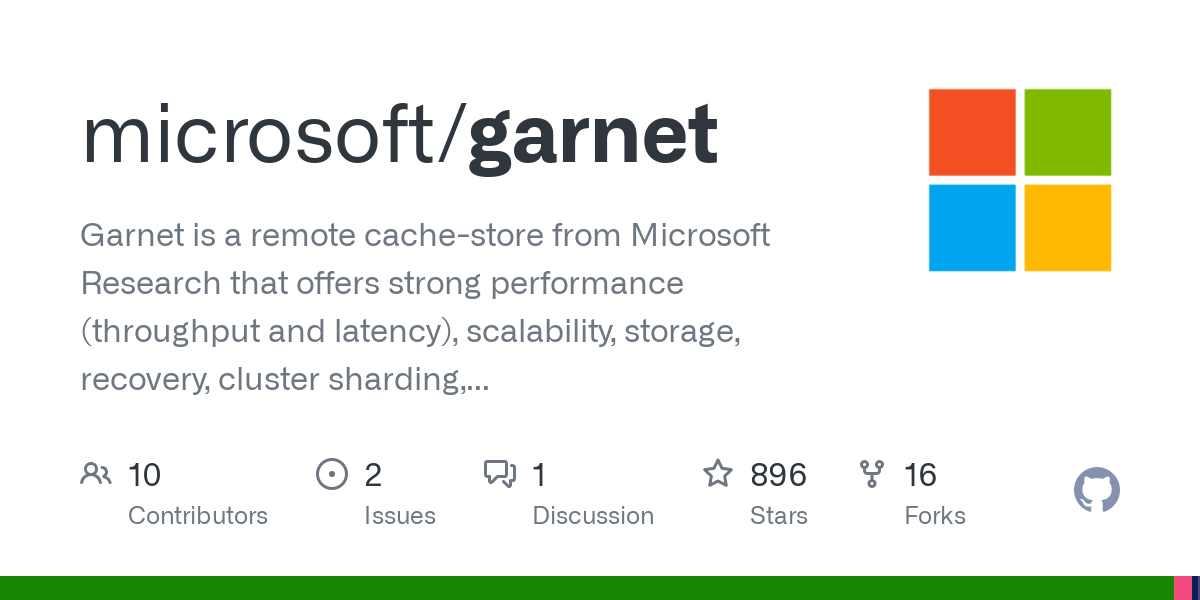Mastodon: @canpolat@hachyderm.io
- 41 Posts
- 42 Comments

 3·1 year ago
3·1 year agoPlease consider posting language specific questions to language specific communities in the future. For example, !c_lang@programming.dev

 4·1 year ago
4·1 year agoI have had Pluralsight for many years now and I agree with you. In some cases they have excellent courses, but I sometimes find the content outdated. I plan to explore O’Reily’s platform next year. They seem to have a different set of resources and are comparable in price.

 3·1 year ago
3·1 year agoThanks for sharing. This looks really low level. The advantage of PlantUml and Mermaid is that they are supported by many systems. So, integration is a non-issue.

 4·1 year ago
4·1 year agoI agree that this is a challenge. One needs to slice the domain such that it can be covered this way. But this also means more people. In my experience, moving from “activity oriented” teams to “business centric” teams require an increase of the headcount.

 41·1 year ago
41·1 year agoYeah, I don’t know if it’s a bug or a feature. I got a similar problem before with one of my posts. I think a workaround would be to post it as a link and paste the image in the
Body.

 6·1 year ago
6·1 year ago-1 is what you get back from fork() when it fails. Normally, it returns a pid_t which is positive if you’re the parent, or zero if you’re the child.
-1, when handed to kill() on Linux, means “target every process but myself and init”. Therefore, when you take the return value from fork(), fail to check for an error, and later hand that value to kill(), you might just kill everything else on the machine.
Great story.

 8·1 year ago
8·1 year agoIn 2014 Robert Martin claimed that number of developers doubles every 5 years and says:
As long as that growth curve continues there will not be enough teachers, role models, and leaders. It means that most software teams will remain relatively unguided, unsupervised, and inexperienced. […] It means that the industry as a whole will remain dominated by novices, and exist in a state of perpetual immaturity.
Not sure if the data can be confirmed or not, but if that’s the case it will be difficult to maintain the best practices in our industry.

 6·1 year ago
6·1 year agoAnd because Windows and it’s eco system of applications he listed gets worse, he extrapolates this to all software.
They admit that bias in the article:
[…] since I’ve always been working in the Microsoft tech stack, I use a lot of it. Thus, selection bias clearly is at work here.
Now, I mentioned free software as the exception. I don’t have any data as to how big free software vs proprietary software. But I think his points extends at least to other proprietary software and is not limited to Windows.
Some software get better, some get worse.
I can agree with that.

 7·1 year ago
7·1 year agoI’m not sure it’s that simple, really. And I definitely don’t think this is limited to Windows. I agree with other comments that this is mostly related to complexity. The more complex the domain the more difficult it is to implement/maintain a good solution. Delivering the new shiny feature is more exciting for all people (product management, development, users, etc.) than to fix bugs. And if you don’t have the resources/maturity to keep technical debt under control, the software quality will suffer over time. Free software may be the exception here as profit is not always the primary concern.

 211·1 year ago
211·1 year agoI no longer look forward to updates.
[…]
It seems to me that some software is actually getting worse, and that this is a more recent trend.
[…]
Why does this happen? I don’t know, but my own bias suggests that it’s because there’s less focus on regression testing. Many of the problems I see look like regression bugs to me. A good engineering team could have caught them with automated regression tests, but these days, it seems as though many teams rely on releasing often and then letting users do the testing.The problem with that approach, however, is that if you don’t have good automated tests, fixing one regression may resurrect another.
Every time I see a new update, I think: “I wonder what will break after this update” and postpone them as much as I can. Software updates shouldn’t cause anxiety. But they do these days…

 92·1 year ago
92·1 year agoI cannot answer the technical question as I don’t have enough experience with that. But I think sites like reddit mostly don’t care about search. They probably think: “People can use google if they want to search.”

 3·1 year ago
3·1 year agoI didn’t read it as lamenting the demise of the tinkerer. But it can of course be read that way too.
I guess many people find themselves in the article. I, for one, spent way too many nights building “under construction” web sites on Geocities. However, I definitely don’t think “passion” has anything to do with what we do (Searls also makes fun of being passionate about passion). I don’t find that to be a sustainable approach. I don’t care if a candidate I’m interviewing has personal projects in Github or a Raspberry Pi at home. Those are interesting, sure, but no more than playing the guitar or swimming.
Again, maybe the article was not well balanced. And maybe the fact that I find myself in the article prevents me from seeing it.

 3·1 year ago
3·1 year agoWhat you did with the message queu in Javascript is impressive. And I’m sure there are other efforts that solved “impossible” problems in creative ways. Creativity is important in a lot of professions and I can admit that it is probably more important in programming than, say, accounting (I hear “creative accounting” is not a good thing). However, I don’t think creativity is vital in what we do. It’s useful, sure. But, for example, it’s not as important as critical thinking. I think the real problem is that we are a relatively new engineering discipline that is still under rapid change. The paradox is, if we look at the programming paradigms, we don’t actually see many new things. We reheat the stuff from 60s/70s all the time (functional programming is a good example). But the socio-technical aspects of what we do (and how we do it) is under constant change (waterfall, agile, autonomy, etc.). And, this is probably what makes software unique. We have a very short feedback loop (as opposed to building a bridge). And I would say, that should also have its place in education.
This talk by Dave Farley sums up my thoughts about “software engineering” quite well: Taking Back “Software Engineering” – Craftsmanship is Insufficient (Piped link).

 19·1 year ago
19·1 year agoWhen I saw the title, I thought “just another blog on 10x developer”. I don’t really know why I decided to read on, but I’m happy I did. Searls touches on many more while investigating the topic. The writer approaches the topic from a inter-generational point of view and also goes in to things like “passion” and “craftsmanship”. I would even say, this is not about the 10x developer at all. This is about how as a young engineering discipline we are still trying to find better ways of doing things.
It’s an open secret that the industry has no idea how to teach people to program. Computer Science degrees famously don’t prepare programmers for the job of programming, which has always been left as an exercise to the student to figure out on their own time. If the industry is going to outlive us enthusiast programmers, will it adopt a sustainable approach to educating the next generation that doesn’t require people to teach themselves everything?

 2·1 year ago
2·1 year agoThat may be due to “the Hacker News hug”. This link had a high score in HN a few hours ago. High traffic may have caused scalability problems.
Unflushable Cache
[…] Other implementations, such as hand cranks in memory caches or even caches provided by mainstream frameworks will not expose any cache management tools. This leaves ops with the only option, to restart the service to flush the memory. (Or worse, know enough about the cache implementation to find it’s location on file system and clear it out manually.)
This is a mistake I have made. It’s easy to overlook during development but difficult to handle afterwards if restart is not trivial.

 9·1 year ago
9·1 year agoThis question is probably a better fit for !learn_programming@programming.dev community.

 2·1 year ago
2·1 year agoBy “lurking” I understand: they would be here reading and voting but not engaging otherwise. In practice, is it any different than not being here at all?
If by “lurking” you mean that they would be here posting under pseudonyms and asking me if I would be able to identify them… Then it’s a more interesting question. But I don’t think I would be able to identify them from their style.









I think you are highlighting an important point that are missed by other commenters emphasizing the developer. I prefer GPL over MIT license. But this is a possible fallback if Redis decides to change its licensing (like several others did).
I think these kind of products have strategic significance for MS for their Azure offering. They are probably preparing to offer this there (in addition to and as an alternative to Redis). So, it makes sense for Microsoft to release this with an OSS license (otherwise no one will adopt it).